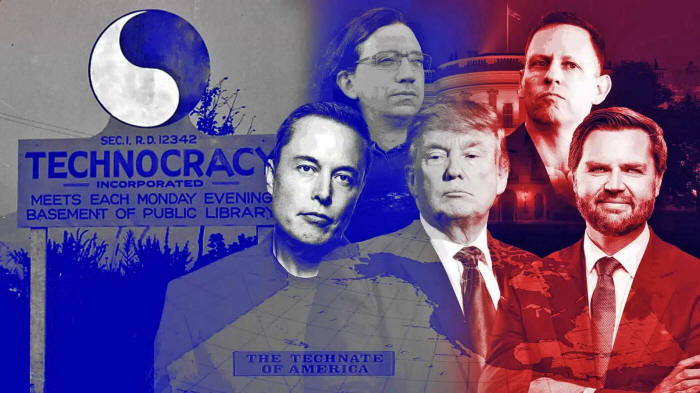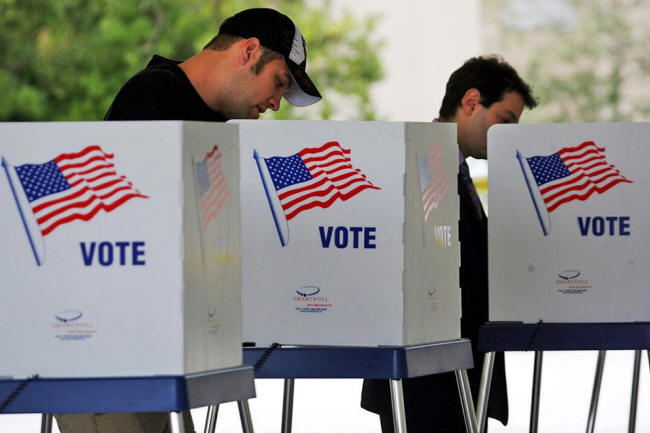|
by Kay Rubacek
America's Real Crisis.
The Collapse of the Citizen...
Across the free world, people are exhausted, institutions appear unresponsive, and leaders feel distant.
In this climate, a new idea is taking hold:
Billionaire technologist and former Google CEO Eric Schmidt has publicly cautioned against this temptation while acknowledging why it is on the rise.
Surveys from 2025 even show that many citizens now trust artificial intelligence (A.I.) systems to make decisions on their behalf more than their elected representatives. It's a striking shift, but it reveals something more troubling than the technology itself.
The real crisis facing America and the West is not technological:
Democracies do not weaken because their tools become outdated..., they weaken when the people who sustain them lose confidence, clarity, and inner direction.
Even if we built the most advanced A.I.-driven civic platforms - and even if we used algorithms to scale up deliberation or streamline participation - we would still fail unless we first addressed the deeper problem:
Yet the idea of "algocracy" (government by algorithm) continues to seduce a society increasingly overwhelmed by disorder.
Algorithms promise what human institutions struggle to offer:
In an era of distrust and institutional decay, those promises feel like rescue.
But they are built on a misunderstanding of both human nature and machine logic.
When citizens lose their sense of agency or become exhausted by polarization, they begin to look for something outside themselves that can restore order.
The impulse is the same:
But once people get accustomed to the idea that "the algorithm knows best," they slowly lose the habits that make self-governance possible:
A society that surrenders judgment cannot sustain democracy, no matter how refined its tools become.
The 'Founding Fathers' (of USA...), though they lived centuries before machine learning, understood this dynamic better than any of today's technocrats.
John Adams's observation that the Constitution was made for a moral and religious people was never a theological demand; it was a sociological fact.
George Washington warned in his Farewell Address that liberty cannot last without shared moral principles. He feared the loss of a common ethic long before he feared foreign empires.
Their foresight came from a sober understanding of human nature, not an idealistic faith in it. They knew that a population lacking virtue would either spiral into chaos or beg for a ruler to save them from themselves...
Today's twist of fate is that the "ruler" many are turning toward isn't even human.
This points to the central flaw in the hope that A.I. can help build a "better democracy."
And whatever it reflects, it magnifies.
Tools inherit the morality of the hands that wield them, and if the people guiding those choices lack moral clarity, the machine will simply scale their disorientation.
Voters cast their ballots at the Boca Raton Fire Rescue Station in Palm Beach County, Fla., on Nov. 4, 2008. Marc Serota/Getty Images
This is why the drift toward algocracy is so dangerous...
The real threat is not that A.I. systems will dominate us but that we may no longer produce citizens capable of resisting domination. A morally confused society can be controlled by almost anything, including a technological black-box that no one fully understands.
This doesn't mean A.I. has no role in democratic life, but there is a line it cannot cross.
The health of a democracy cannot depend on the elegance of its code or the capacity of its machines.
The path forward will not be found in a new algorithm.
It begins where this enduring republic began: with the formation of the citizen. A society must restore historical orientation as guidance, not nostalgia.
At the center of all of this stands the human person.
Democracy can survive new technologies.
It has already survived industrial revolutions, global wars, economic upheavals, and dramatic shifts in the information ecosystem, but it cannot survive the collapse of the citizen.
If we want democracy to endure, the solution is not to outsource judgment but to reclaim it.
The question of our time is not whether A.I. will govern us.
The question is whether we will remember how to govern
ourselves...!
|



